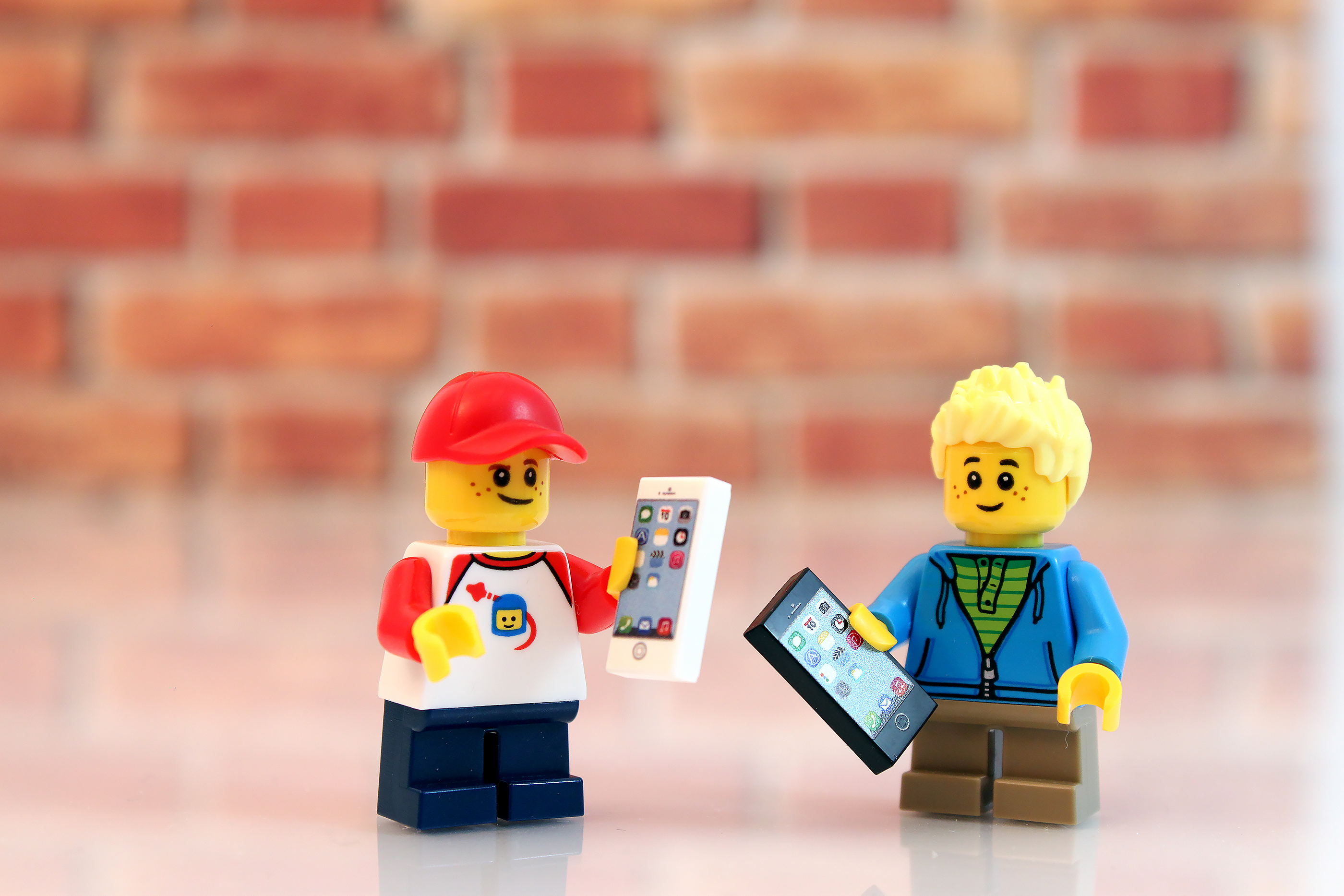Crisis as a catalyst... for success
We need to be realistic: we might soon be on the verge of one of the world’s biggest economic recessions. The impact of a recession can be long and harsh, returning ultimately to economic growth but not necessarily a full recovery of the pre-recession economy. In other words: people, companies and organisations affected by a recession can often continue to struggle long after economists have declared a recovery.
While it can be difficult for businesses to keep a clear head in the eye of the storm, there’s no better time to learn from past mistakes as well as successes. Time to transform these learnings into opportunities. As the great man Mandela once said: ‘It’s only impossible until it’s done’. The best way to deal with a problem is to face it and solve it (or to die trying). Now is the time to take essential steps to protect your business from potential recession.
1| Recession-proof recipes
So, how do you embrace a crisis in order to reinforce your organisation? Here are some winning examples from the past and present:
Groupon
The 2008-09 recession caused consumers to cut back on their purchase of goods, eating out and trying new activities. Then along came Groupon, as a-deal-a-day website offering consumers access to non-essential services. Groupon’s popularity was rooted in its ability to give both consumers and businesses a way to survive the recession. Consumers received daily deals to help them save on virtually anything, and businesses gained a relatively inexpensive way to generate new interest and customers. In its first two years, the company quickly conquered over 35 countries and 300 markets, creating an annual profit of €500 million.
BrewDog
In order to maintain sales during the Corona outbreak, the Scottish brewer BrewDog will turn its bars into drive thrus. Customers will be able to place orders via its Hop Drop app. It is also offering special discounts of 30%, and 50% for NHS workers. “We came up with this after considering new ways to buy beer from us. Order online and we’ll simply bring it to you, or your vehicle.” The company also plans to make hand sanitiser at its distillery and issue this for free to those who need it. Other gin producers, Verdant Spirits and 58 Gin, have made similar moves, while LVMH in France has switched from producing perfume and cosmetics to making hand sanitiser. Meanwhile, having shut half of its stores, Zara’s owner Inditex is considering the temporary production of hospital gowns. Talking about purpose? A crisis is a great occasion for any company to show they are really serious about their purpose.
Lego
When you consider how families cut costs to save money when times are tough, you would expect plastic building toys to be high on the list of expendable luxuries. Yet, in 2009, when most companies were scrambling to survive, Lego’s profits soared by 63 percent, reaching an all-time peak in profitability. The key to their recession success? An exploration of the global market. The US toy market was stagnant, so Lego expanded into Asia and focused its efforts on building sales in Europe – particularly the UK.

Amazon
Retail companies were hit hard by the recession in 2009, but Amazon grew sales by 28 percent by focusing on innovation. Amazon unveiled many new product offerings during this period, including the Kindle 2, which helped to boost sales during the end-of-year shopping season. On top of that, Amazon always put excellent customer service and competitive dominance first, before profit. It offered more products for lower prices, which made it the obvious choice for cost-conscious consumers.
2| Crisis as a catalyst… for success
What these examples teach us is that a crisis can actually be a catalyst for success by stimulating creativity and adopting a long-term mindset. Moreover, it is actually a time to accelerate innovation.
When the economy slows down, innovation strategies and projects must go on, for many reasons:
Innovation opportunities exist both in top-line growth (new products, services, and revenue sources) and bottom-line improvements (cost reduction, productivity enhancement, doing things better/faster/cheaper).
Past research demonstrates that businesses who remain close to their consumers during a crisis, and invest extra in innovation, experience a subsequent sales boost. Successful companies do not stop investing in new product development and continue re-engineering existing products for new markets. This means identifying new, un(der)satisfied consumer and customer needs by challenging the standard category definitions.
Winners will innovate their way out of a downturn with new products/services, systems and needs, while increasing product and portfolio penetration.
Yet many of these businesses have come to realise that real needs and desires are not always revealed using traditional methods of innovation, e.g. in-house development, focus groups and customer research assessing feasibility and market potential. Instead, they are hardwiring customers and tapping into their creativity and resourcefulness early on, in the product development lifecycle, working with them right from the moment of idea generation and during design rather than in later product testing.

This consumer-centric approach allows companies to adapt faster, connect deeper and perform better – and serve their customers with more inspiration, empathy and relevance than ever before. Such collaboration and consumer participation also enables new product and service development to be accomplished more quickly and cost-effectively, while maximising the chances that products will succeed.
3| The way forward
At Haystack Consulting, we can help you to drive consumer participation and accelerate your long-term business plan even when the world is in crisis. Here are just three of our online solutions:
Crowd Connect: a blueprint for an online ‘why’-driven innovation cycle
Crowd Connect is a unique consumer-engagement platform that guides us from a rough idea through to a validated roadmap. Your team and our Haystack Consulting experts work together in asking a community of consumers highly-specific questions about shopping expectations, digital lifestyles, product preferences, positioning, purchase behaviours, and beyond – on a daily basis.
The human element drives the entire process, which is why customers are so willing to share their most personal thoughts and feelings. Our regular interaction reveals insights and pivots our daily questions as we explore your customers’ underlying motivations, hidden concerns… . It’s a very intense and active procedure, producing robust results.
Over an agreed period – whether it’s a week, 2 months, or more -, we successfully uncover actionable insights into ‘what’ kinds of experiences will satisfy consumer needs, ‘how’ to position them in the market for maximum impact, and ‘why’ consumers will find them compelling.
Innovation Hackathon: developing a viable, consumer-centric proposition in a fortnight
Using social networks & news platforms, we can follow the habits and goals of cutting-edge consumers. This grants us an unusual level of insights into the daily behaviour and deep-rooted concerns of specific groups of consumers over a two-week period.
After this phase of listening to consumers, we moderate and facilitate a one-day online hackathon, in which we go from raw insights to a completed product concept. Stakeholders from Marketing, Sales, R&D, and CMI—and often aided by these cutting-edge consumers—are able to co-create products that would have never been possible in a normal office environment.
The Hub: facilitating agile and fast decision-making thanks to always-on insight communities
Haystack’s online communities can spark change, drive innovation and boost companies by providing the means to actively listen and flexibly connect with consumers, thus gaining an understanding of changing consumer needs and friction early on in the development phase.
These relationships produce high-quality feedback on how stakeholders think and feel about a solution, campaign, brand or touchpoint. The ongoing nature not only provides companies with a finger on the pulse, it also allows the real potential of the solution to be explored and shaped in close collaboration with consumers. The participant experience is both transparent and empowering.
💬 Let crisis be a catalyst for success, and let’s get through this together! Whatever your business issue or need, we can help you find a tailored solution. For more details of what we can offer, please get in touch.
